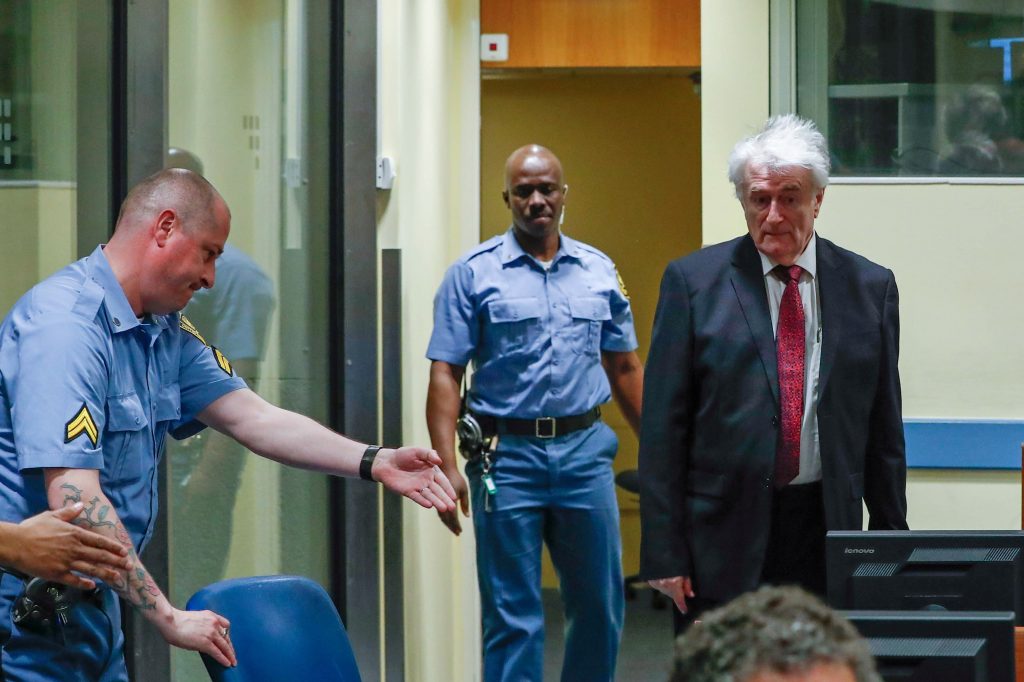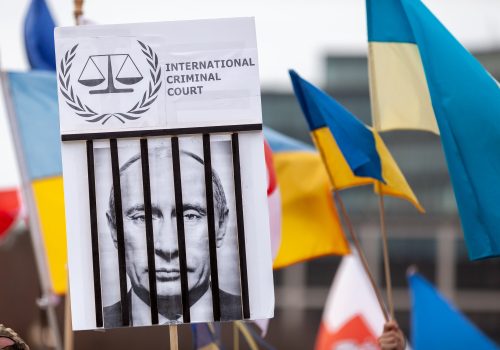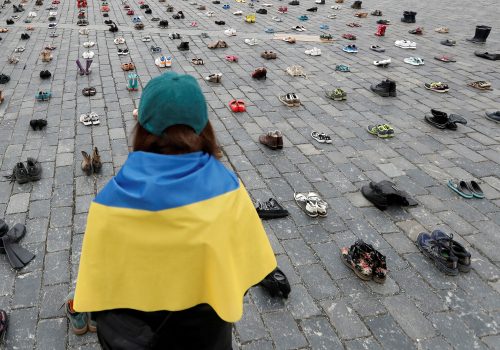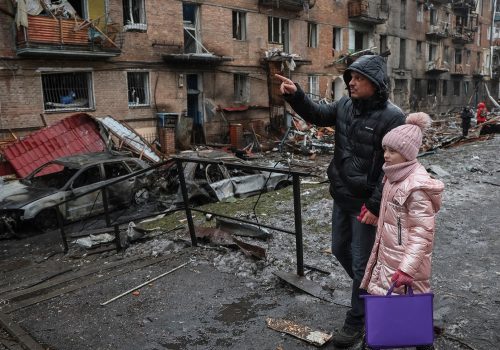After the International Criminal Court (ICC) issued an arrest warrant for Russian President Vladimir Putin on March 17, many observers quickly said there was “little prospect” he would face justice. But while past performance is often no guarantee of future results, modern international justice efforts actually are far more successful than what many believe. If modern history is a guide, the ICC arrest warrant has dramatically changed Putin’s fate.
The “modern” era of accountability for heads of state and heads of military forces for genocide, crimes against humanity, and war crimes can be dated from United Nations (UN) Security Council Resolution 780 (1992) establishing the UN Commission of Experts on the Former Yugoslavia. This was a major step by the Security Council to hold senior officials to account, and led to the establishment of the first modern multilateral war crimes tribunal under the Council’s Chapter VII authority a year later.
Prior to the March 17 arrest warrant for Putin, some eighteen heads of state or heads of major military forces have been wanted by international justice—defined here, broadly, as serious multilateral efforts at accountability under customary international law or treaty law for genocide, crimes against humanity, and serious war crimes. This list includes officials wanted by international tribunals set up under the Chapter VII authority of the UN Security Council for Yugoslavia and Rwanda, by multilateral treaties such as the Rome Treaty that set up the International Criminal Court, by multilateral ad hoc courts set up for Sierra Leone and elsewhere, and by domestic courts set up with significant international support and assistance as in Cambodia and Iraq. Many of these courts also sought the arrest of subordinate officials, with mixed results, but heads of state and major political or military leaders wanted by international courts have faced justice far more often than not.
The preferred result of international justice advocates is a fair trial and a verdict under the rule of law. An accused who appears before an international court counts as a “win” even if the result is an acquittal. But practical realities sometimes intervene, dealing out “rough justice” where an accused reportedly commits suicide to avoid being handed over to a court, as happened with Pol Pot in 1998, or is killed out of vengeance by those who lost relatives and friends at the hands of a ruthless dictator, as happened with Muammar Gaddafi in 2011.
Working in the field of international justice in the early 1990s, my colleagues and I became accustomed to being told by diplomats and journalists that it was impossible that the former Yugoslavia’s Slobodan Milošević, Radovan Karadžić, or Ratko Mladić; or Iraq’s Saddam Hussein would ever face justice. In the end, they all did—and many others, as well. The atrocities get the headlines, while the work of activists, diplomats, investigators, prosecutors, and judges is slow, sometimes tedious, and always comes years later than it should. But the record of international justice in the modern era is one of history’s most striking if least-recognized successes.
To be sure, Putin is today the president of a nuclear-armed state that currently holds a veto in the UN Security Council. Thus, Putin has leverage that the eighteen other top officials on this list did not. Nevertheless, the political wheels in Russia may turn as they did for many of the officials on the list below.
The potentially surprising outcome facing Putin should be informed by these statistics:
Of the eighteen men—all are men—wanted prior to Putin:
- Fifteen have faced justice of some kind before a judicial tribunal.
- Two of the fifteen were acquitted for lack of evidence under less-than-ideal circumstances, but nevertheless appeared before judges of the ICC and saw the charges against them dismissed.
- Two others of the eighteen faced rough justice and were killed or committed suicide before they could be turned over to an international tribunal.
- Three of the eighteen turned themselves in voluntarily, of which two had the charges dismissed; the trial of the third is still underway.
- Only one of the eighteen major figures on this list is still at large.
In percentage terms:
- 83 percent of all heads of state and senior military leaders wanted by international justice have faced justice.
- 94 percent have either received the judgment of an international tribunal, been killed, or committed suicide prior to being turned over for international trial.
- 17 percent turned themselves over voluntarily, and two of those three accused had the charges dropped and are now free; the trial of the third is underway.
- 17 percent were acquitted or had the charges dismissed.
- Of the seven who have died, 0 percent died in their beds at home as free men.
Thomas Warrick is a senior fellow and director of the Future of DHS Project at the Atlantic Council. In 1993-1995, he was senior counsel to the chair of the UN Commission of Experts on the Former Yugoslavia. From 1997-2001, he was the first deputy in the US State Department Office of War Crimes Issues.
The author thanks David J. Scheffer of the Council on Foreign Relations and Celeste Kmiotek of the Atlantic Council’s Strategic Litigation Project for their assistance in filling out the entries in this table.
Further reading
Fri, Mar 17, 2023
Experts react: The International Criminal Court just issued an arrest warrant for Putin. Will he wind up behind bars?
New Atlanticist By
The Russian president and the Russian commissioner for children’s rights stand accused of the war crime of abducting Ukrainian children, and more charges may follow.
Fri, Feb 24, 2023
How legal actions against Russian aggression in Ukraine can serve as a model for other conflicts
New Atlanticist By Celeste Kmiotek, Lisandra Novo
There is an unprecedented number of investigations and accountability efforts under way in response to Russia's invasion. It's a sign of success—but it also shows how victims of international crimes have unequal access to justice.
Tue, Dec 6, 2022
How Ukraine’s proposed special tribunal for Russian aggression would work
New Atlanticist By Celeste Kmiotek
A special tribunal on Russian aggression would raise questions around jurisdiction, legal details, and the role of the US. Here's how they can be addressed.
Image: Former Bosnian Serb leader Radovan Karadzic appears in a courtroom before the International Residual Mechanism for Criminal Tribunals (MICT), which is handling outstanding war crimes cases for the Balkans and Rwanda, in The Hague, Netherlands, April 23, 2018. REUTERS/Yves Herman/Pool



